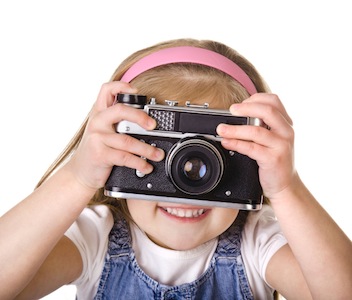Is it fair to our children to begin to create their online presence before they even have the wherewithal to ponder what that means?
I was in college before social media culture took hold. I’m grateful for that because it meant that not only were my peers and I of an age to approach online media with some level of maturity (because doesn’t being a 13-year old on Facebook/Instagram/Twitter sound like the nightmare to end all nightmares?), but it also meant that I was the one in control of my online presence. I have had the ability to curate almost all online content that pertains to me, my life, and my image, save for content on websites related to public work or functions in which I’ve been involved, and a few random, untagged photos taken by friends.
Now, however, there is a whole generation of people who have yet to cut their first tooth, but are already the subject of a considerable amount of online content that, in many cases, starts with their birth. This is content over which they have no control because, well, they don’t even know what the Internet is. Their parents and relatives have uploaded it to the Web well before the subjects of that content are capable of having any say over the dissemination of their image or activities, or any understanding of the implications of an online presence.
The trend of continually posting pictures of your children online is beginning to strike some as problematic, and not just because of the sheer volume of baby photos that people—especially those with many friends in their 20s and 30s—encounter on social media every day. A recent Time article expresses worry over the “psychological implications of growing up without anonymity,” creating what a Slate.com piece calls a generation of children born into “digital original sin.” Both of these articles site what might be the biggest problem with so much child-related content: the notion that these children have no agency over the creation of their online identities.
The feelings that parents have about the arrival of their children into the world often go beyond the confines of linguistic expression. Only a heart of stone would fail to have some understanding of the impulse to share such meaningful events. In the past, the images related to those events were shared in photo albums (the gargantuan three-ring binder kind, not the Flickr kind), in home videos (rest in peace, VHS), or, if you’re from the ’60s, carousel slide projectors.
We poured over physically tangible versions of these images while visiting with friends, at family reunions, or in private moments of nostalgia. Today, we upload them to the Web in seconds, where they can be viewed and “liked” at anytime. And even though privacy settings give us the illusion that we can control who sees these images, I think Edward Snowden proved that we’re not as in control as we’d like to believe.
Don’t get me wrong, in my years on Facebook, I’ve uploaded many photos, I greatly enjoy Instagram, and I’ve “liked” my share of baby pictures posted by my friends. I even rushed to post a picture of my own young niece the day she was born, overcome with emotion and joy as I was. But then I had another thought, and decided to take the picture down.
That thought was the idea that this tiny baby, completely unaware of the world and how it works, will someday gain an understanding of both herself and the world to a far greater extent than I ever will. And as she gains that understanding, I wondered if it’s fair to her to begin to create her online presence before she even has the wherewithal to ponder it and what it means. Suddenly it seemed that, while a family photo here and candid shots there are one thing, full galleries of sometimes very intimate moments digitized, uploaded to the nebula of cyberspace, and broadcast to hundreds of “friends”—some of whom I only kind of know—was another.
It’s my niece’s life, after all. Not mine. And not her mother’s or her father’s either. She is not “ours.” She is her own. We, her family, are merely the custodians of her life until she’s big and strong, and aware enough to make her own choices. Do we really have the right to “share” her life to such extents and on such a scale as the World Wide Web?
I love seeing pictures of my friends’ babies. If you post an album of your baby online, I will probably click through and “like” every single adorable one of them. But I also greatly admire the restraint I’ve witnessed in some young parents I know. They upload and share images of their children as anyone would, but they do so selectively, thoughtfully, and less often. I appreciate their reserve not because I don’t want to see pictures of their babies, but because I recognize it as a courtesy to their children—who will grow up to be adults. And whose preferences about their own online presence are a long way from being known.
McKenzie Chinn is an actor and writer living in Chicago. You can follow her on Twitter @McKenzieChinn and visit her blog at hydrocarbo@blogspot.com.
Related Links:

